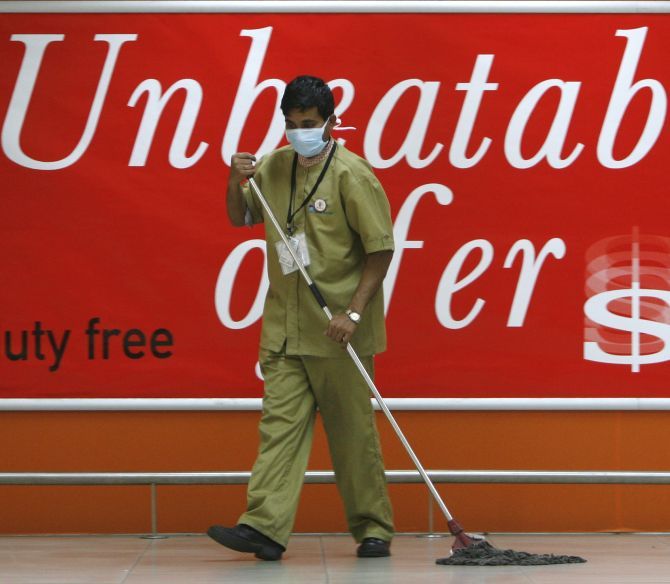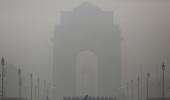Only the Indian elite would rather not breathe than be ordinary, writes Mihir S Sharma.

I am very proud of the Indian elite. We may largely fail at everything else, but we are world-beaters in terms of self-pitying outrage.
First: a word about the “elite”. You, sir or madam, are a member of the elite. Please do not call yourself middle class. By no logical, ethical or mathematical principle can the top few percentiles of a country in terms of income call itself middle class. If you still try and do so, you are being dishonest.
Yes, if the Delhi government’s odd-even car regulation affects you, then you’re certainly a member of the elite. Only 10-11 per cent of Delhi, the richest state in India, drives to work in a car or van, according to the 2011 Census. Let’s just put that out there.
Second, on the facts: first, Delhi has the worst air in the world. We know this, as also the fact that poor air quality spikes in wintertime. Second, in spite of rampant disinformation that numberplate-based road rationing “has not worked anywhere”, pretty much everywhere it has been tried as a temporary measure has shown a 17-20 per cent drop in pollution. Third, in spite of more rampant disinformation that cars don’t really count towards pollution in Delhi, most reliable independent studies show they do -- between 50 and 80 per cent.
And yet Delhi’s elite is terrified at the prospect of having a spot of car trouble for a fortnight just in order to live a little longer thanks to cleaner air. It is outrageous to ask us to live for seven days like the other 90 per cent of our fellow-citizens! Outrageous to suggest we walk or take a cycle-rickshaw to a crowded metro station, like the real middle class! Tyrannical to make us pay a few hundreds for a taxi during a public health emergency!
Only the Indian elite would rather not breathe than be ordinary.
What deep cultural neuroses underline this panic at dealing with regular people’s realities? I can’t help thinking that our cultural attitude to public transport mirrors our attitude to public spaces, and arises from the same space. An odd characteristic of India is the startling contrast between its particularly pure private and domestic spaces -- and its completely uncared-for public spaces.
Why is this? Perhaps because we have one of the most fragmented societies in the world, and always have had; solidarity, under these circumstances, is particularly difficult to build. And a certain degree of solidarity is essential for anything “public” to be effective -- public goods, public spaces, public transport, public discourse.
In this case, we have a particularly amusing problem. The elite can secede from dug-up pavement, from sewage in drinking water, from litter-strewn public parks, from inadequate policing. But it cannot secede from murderous air.
Or can it? Certainly, one truly extraordinary statement of our cultural biases is that most people seem more willing to pay thousands of rupees for air purifiers for every room than to deal with road rationing for a few weeks. If the electricity goes off, no worries! The diesel gen-set will kick in, spewing more fumes into the air. This is my right; and it is a problem only for those with neither air purifiers nor electricity.
Some have claimed that it isn’t fair to talk about elitism in this context. After all, the concerns being expressed are just the same as anyone would have about commuting -- the safety, the crowds, the difficulty. This is, in many ways, the most puzzling argument yet. It seems almost painfully clear that expecting money and status would insulate you from the problems that everyone else faces is the very definition of elitism.
Cultural biases blind you to data. It means that nobody is interested in the undeniable facts that I laid out above -- that road rationing has been shown to work, that car commuters are a tiny upper crust, that cars are undeniably responsible for Delhi pollution. Similarly, cultural biases against solidarity means that nobody was interested in the undeniable fact that far more people benefited from a working bus rapid transit system than were hurt. Studies of commuters at the time showed that between 80 to 90 per cent of them approved of the BRT corridor; but the noise that the 10 per cent creates is too loud and privileged for the others to be heard.
There are other debates, too, where cultural biases against solidarity blind us to facts or logic; for example, the idea that a “creamy layer” of reserved-quota applicants take coveted college seats away from general-class applicants. When economists examined the question rigorously, they found quota applicants offered seats in the engineering entrance exam they studied had, in fact, family incomes much lower -- 60 per cent of -- the family income of those general-category students who would otherwise have been admitted. Creamy indeed.
Nor is this blindness a Delhi problem. It’s an India problem. Of the world’s 20 most polluted towns, 13 are in India. And most of the others are in Pakistan and Bangladesh, a moving reminder of our common cultural characteristics.
But this doesn’t matter. Our whiny “middle class” would rather have sewage in their water, cancer in their air and death on their roads than ever accept that they share the earth they walk on with other, lesser breeds of human.











